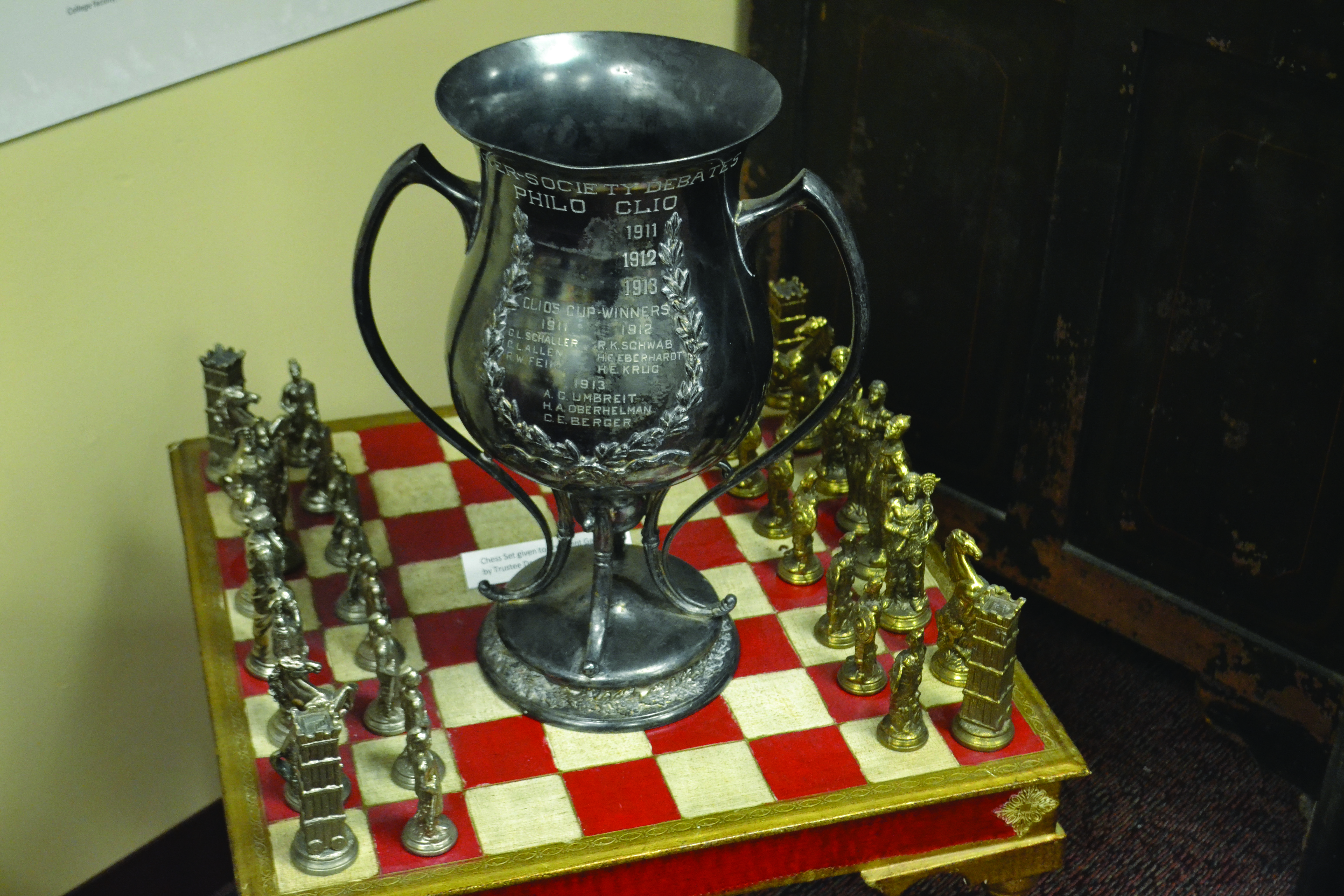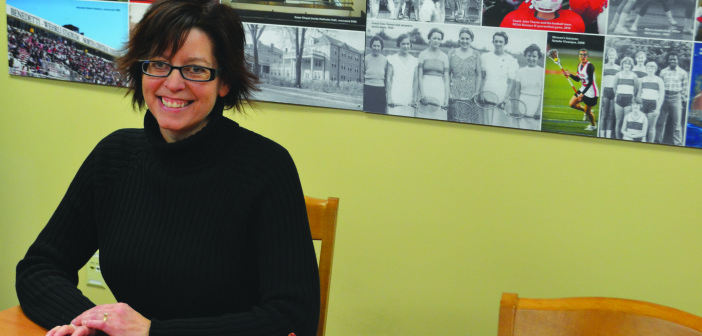Contributing Writer 
Throughout the course of her career, Kim Butler has often been called an architect. Occasionally, an anarchist. Yet, she doesn’t design buildings and she doesn’t create disorder by failing to recognize authority; therefore, by definition, she is neither. She is an archivist.
Since graduating from George Mason University in 1993 with a master’s degree in American history, Butler has found that as an archivist, you normally “have to explain.” And explain she has, from perfecting her explanation and archival skills as she returned from the East Coast — the Smithsonian Institution and the National Archives — to her Midwest roots, holding positions at the Chicago Historical Society, the Evangelical Lutheran Church of American Archives, and finally, at North Central College.
It’s in the archives of the College, over the slight purr of the air conditioning, that Butler remembers how she became involved in archival work. Originally majoring in biology at the University of Illinois, she soon realized that it was not like high school biology and certainly not her cup of tea. She remembers the conversation with her mom: “Oh my God, I hate my major. I hate it.” At that point, her mom simply reminded her that she’s, “always really liked museums.”
The main task of the archivist “is to establish and maintain control, both physical and intellectual, over records of enduring value,” according to the Society of American Archivists. Based upon this description, it may sound odd that the lack of any organization in the archives is what drew Butler to North Central. This was an opportunity that she had “never even heard of before.” The College had “a collection but no organization to it.”
In addition to the opportunity of “imposing arrangement on an entire collection,” the spontaneity of any given day was undeniably attractive. Butler left a number of her jobs after the work became too “rote.” But managing the archives of a college offered a new challenge. Whether the call is coming from one of the academic departments, Marketing Communications, or the president’s office, each day varies and requires flexibility and patience. As much as she enjoys her role as the College’s first full-time archivist, she will be the first to admit that the job is not without its struggles.
North Central’s Sesquicentennial offered the chance to showcase the school’s rich history and also created a large amount of material that was just “shoved on shelves” as the celebration commenced. These shelved materials are among the first that Butler plans to address.
While she is prepared to handle this time of catch-up, there is another challenge facing archives that few are ready to handle. H. Thomas Hickerson, the 55th president of the Society of American Archivists, recognizes it as the first challenge facing the archival profession: “managing the identification, appraisal, retention, preservation, and provision of support for the use of documents generated in electronic form.”
It is this “explosion of electronic” documents and records that Butler bluntly acknowledges her role in ignoring and what she says is the “part that kind of wakes me up at night.” The worry is clear. Her voice softens and speeds up, while her black Timberland fleece is pulled more tightly around her body.
The quickly advancing field of technology is only further impeding her efforts. The appropriate software to read files even 10 years old is no longer available and what it means to be a student is being written online. Clubs don’t publish newsletters; they have Facebook pages.
While she worries about these technological shortcomings, those around her have recognized Butler’s efforts. In 2011, she was a recipient of North Central College’s Dissinger Award, recognizing her “outstanding teaching, scholarship and service ‘above and beyond the call of duty.’” While calling it a “lovely acknowledgement,” Butler was most honored by the realization that what she does at North Central “has impacted the institution itself…impacting our relations with alumni, impacting the students in getting this history.”
Mia Casasanto is one of students who sees the impact that Kim Butler has upon the school. She describes Butler as, “knowledgeable, obviously.” Beginning her third year as a student assistant in archives, Casasanto experiences first-hand Butler’s knowledge of the school and learns under her direction.
Butler’s love for her job is most clearly seen when surrounded by the archives. Her enthusiasm is even more evident when she tells of a Civil War diary that belonged to the son of North Central’s first president. Even her least-favorite artifact, a chess set acquired at a random estate sale that was donated to President Gael Swing, receives a good-natured smile.

